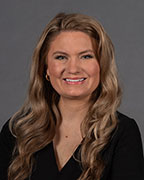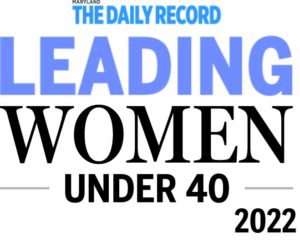The embargo has been lifted and we are permitted to announce that Best Lawyers® has selected Donna M.D. Thomas and Jim Astrachan, once again, for its 2023 Edition of The Best Lawyers in America®. Continue reading
Copyright Fair Use: How Much Copying is Too Much Copying?
“…no plagiarist can excuse the wrong by showing how much of his work he did not pirate.” These words were written by Judge Learned Hand in 1936. His point was that a taking of someone else’s expression will not be excused merely because it is insubstantial in quantity when held up for comparison to the infringing work. Continue reading
How to Reduce a Copyright Liability from Major to Minor
A client recently had the good fortune to reduce its financial exposure for copyright infringement from $3 million to a little over $75,000. Still, $75,000 is a lot of money to pay for unauthorized reproduction of twenty photos that belonged to someone else. But on the down side, in addition to statutory damages of up to $150,000 per photo, there also was the possibility of an award of attorney’s fees, and because the facts as known pointed to the conclusion that this client was aware that the photos were not its to borrow, it was quite likely a jury would have found the infringement to be willful and would, and could, have awarded $150,000 per photograph. Continue reading
Bankruptcy Treatment of Trademark Licenses
Worth mentioning if a licensee or licensor of a mark is facing bankruptcy, is a 2019
Supreme Court decision. Mission Product Holdings, Inc. v. Tempnology, LLC, 139 S.Ct. 1652 (2019). Decided 8–to–1 following a split among the circuits, the Court resolved the effect of a debtor in bankruptcy’s attempted rejection of a trademark license.
The question was would the rejection constitute a breach of contract, or a recission that would bar the licensee from ongoing use of the licensed mark? The stakes are high for most licensees that want to continue to do business using the licensor’s mark. Continue reading
Protection of Unregistered Trade Dress
The requirements to protect unregistered trade dress are well established. Still, it’s worth revisiting this subject from time to time, whether for trademark novice or pro.
At one time, trade dress only included packaging or “dressing” of the goods, but modern courts have pretty much universally expanded the meaning of trade dress to include the design of a product. For example, the shape of the Coke bottle, the red sole of a Christian Lorboutin shoe, the shape of the Weber BBQ kettle. See, Stuart Hall Co., Inc. v. Ampad, 51 F.3d. 780 (8th Cir. (1995)). Unregistered trade dress is protected. If not registered, the burden is the owner’s to prove if the trade dress meets all requirements to make it protectable. Lanham Act Section 43(a)(3) specifically refers to a civil action for trade dress infringement for trade dress not registered on the principal register. If registered on the principal register, it is presumed that the trade dress is distinctive, with the owner having demonstrated secondary meaning to the examiner. Continue reading
Unlawful Use of a Trademark in Commerce and the Affirmative Defense to Infringement
The Lanham Act imposes on a trademark’s owner the requirement that the mark be used lawfully in commerce. If it is not, the USPTO should refuse to register it, and if registered the registration should be canceled. As well, unlawful use of a trademark in commerce has been applied as an affirmative defense to infringement in the case of registered marks, and there is no basis to distinguish, for this purpose, registered and unregistered marks. It’s just that the tested cases have been with registered marks.
Licensee Estoppel and Naked Licensing
Federal courts are prone to apply licensee estoppel to prevent a trademark licensee from challenging its prior licensor’s rights in the mark. If, of course, a licensee can establish that the prior licensor has no rights in the mark-at-issue, that licensor will not be able to enforce its rights in the mark. Those circumstances will often arise when the prior licensor sues it prior licensee because the latter continues to use the mark following expiration of the license.
Kaitlin Corey Named in The Daily Record’s Leading Women Under 40
Congratulations to our partner Kaitlin Corey on being named among The Daily Record’s Leading Women Under 40 for 2022.

The Daily Record’s Leading Women awards honor women who are 40 years of age or younger for the accomplishments they have made so far in their careers. Winners were selected for the honor based on their professional experience, community involvement, and commitment to inspiring change.
 A partner at Goodell DeVries, Kaitlin Corey represents a wide range of clients in intellectual property law and litigation and tax law. Her practice spans everything from trademark litigation to multi-million dollar business transactions and tax controversy work. She speaks regularly on copyright and trademark law and is an adjunct professor at the University of Baltimore School of Law, where she co-teaches Trademarks and Unfair Competition Law with Jim Astrachan. She is immediate Past Chair of the Intellectual Property Section of the Maryland State Bar Association.
A partner at Goodell DeVries, Kaitlin Corey represents a wide range of clients in intellectual property law and litigation and tax law. Her practice spans everything from trademark litigation to multi-million dollar business transactions and tax controversy work. She speaks regularly on copyright and trademark law and is an adjunct professor at the University of Baltimore School of Law, where she co-teaches Trademarks and Unfair Competition Law with Jim Astrachan. She is immediate Past Chair of the Intellectual Property Section of the Maryland State Bar Association.
Kaitlin also serves as General Counsel for the Annapolis Police Foundation and as a Dean of the Lawyers’ Campaign for CollegeBound.
